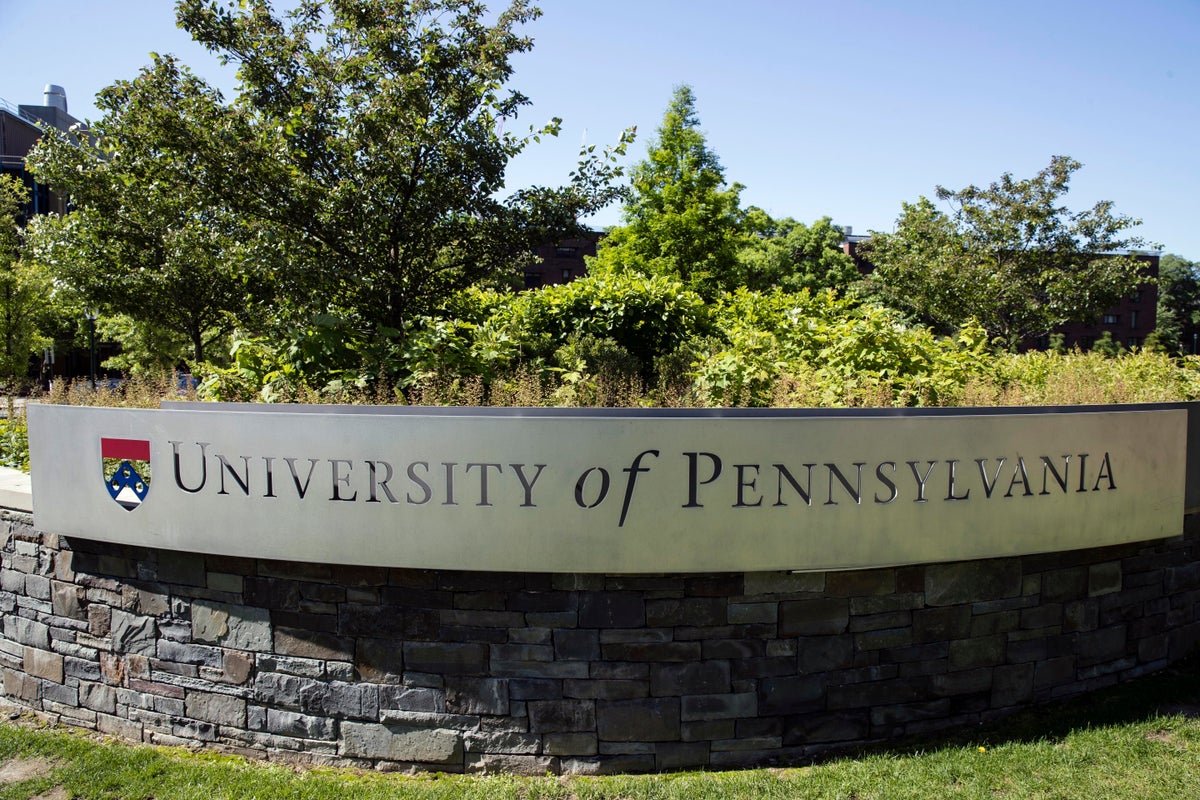
Republicans in Pennsylvania voted to block $33.5mn to the University of Pennsylvania’s veterinary school amid criticism over the response to antisemitism on campus.
Annual state aid for the University of Pennsylvania School of Veterinary Medicine, commonly referred to as Penn Vet failed to reach the two-thirds majority in the state’s House of Representatives on Wednesday.
The State Senate – controlled by Republicans – had already approved the funding for the school, voting overwhelmingly to support it earlier in the day but failed after the Republican floor leader spoke against it.
"Until more is done at the university in terms of rooting out, calling out, and making an official stance on antisemitism being against the values of the university, I cannot in good conscience support this funding," GOP House minority leader Bryan Cutler said during floor debate.
The vote came four days after Penn University president M Elizabeth Magill resigned amid pressure from donors and criticism over testimony at a congressional hearing where she was questioned about whether calls on campus for the genocide of Jewish people would violate the Ivy League school’s conduct policy.
The fallout of the war in the Middle East between Hamas and Israel has created faultlines in American universities with concerns growing over rise in antisemitism and spike in Islamophobia amid Israel’s intensifying bombardment of Gaza and mounting Palestinian death toll.
Around the country, lawmakers and governors – primarily Republicans – have begun eyeing public universities over criticism that campuses have become too tolerant of antisemitism.
Ms Magill and other leaders of top American universities have been accused by Republicans and Democrats of evading answers to Republican congresswoman Elise Stefanik. The New York Republican was repeatedly asked whether calls by students for the genocide of Jews would be termed harassment under the school’s policy at a 5 December hearing before the House Committee on Education and the Workforce.
University of Pennsylvania former president Liz Magill during a hearing of the House Committee on Education, 5 December on Capitol Hill in Washington— (Copyright 2023 The Associated Press. All rights reserved.)
Every Democrat voted in favour of the bill, and all but 25 of the 101 Republicans in the chamber opposed it, blocking the aid to the university.
Penn University said it was “deeply disappointed” in the vote and hoped the House will reconsider it when it returns to session next year.
Penn Vet “is the sole beneficiary of these funds, and the school has continued to fulfil its educational and service missions to the Commonwealth in good faith throughout this six-month impasse, as it has for over 139 years”, the spokesperson told CNN.
The decision to withhold $33.5m from Penn’s veterinary school is significant, constituting approximately 18 per cent of the school’s budget.
Typically, the funding receives widespread support from lawmakers due to the veterinary school’s crucial role in training veterinarians and combating infectious diseases in Pennsylvania’s agricultural sector. In June, a previous version of the bill passed in the House with strong bipartisan support.
But even prior to Ms Magill’s testimony before Congress, Republican lawmakers had delayed a vote on Penn’s financial assistance following weeks of criticism from certain donors and alumni, who were dissatisfied with the university’s approach to addressing perceived acts of antisemitism.
The university also held a Palestinian literature festival in September featuring speakers, including Pink Floyd co-founder Roger Waters.
A truck with electronic panels drives along a street on 12 December near Harvard University, in Cambridge, Mass, while displaying messages calling attention to a recent controversy involving testimony to Congress by presidents of three prestigious schools, including Harvard University, MIT, and the University of Pennsylvania— (AP)
In response, Penn last month launched a task force to write a plan to fight antisemitism on campus, led by the dean of Penn‘s dental school, and a separate presidential commission to fight hate on campus.
As statehouses across the US are scrutinising how higher education systems are handling tensions around the Israel-Hamas war, Republican lawmakers in Florida have introduced legislation to revoke any state financial aid from any student who "promotes a foreign terrorist organisation”.
Legislators in New York have also proposed a bill mandating public colleges and universities to investigate and take disciplinary action against instances labeled as "hate and discrimination" tied to antisemitism.
The proposed legislation further calls for the adoption of a policy statement and the enrollment of administrators in sensitivity training focused on addressing these issues.
In Utah, the board of higher education — at the behest of Republican governor Spencer Cox — passed a resolution requiring that the state’s public universities stay neutral on political and social issues, protect free expression and be able to prohibit expression or actions that violate the law.
Additional reporting by agencies







